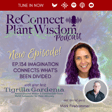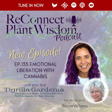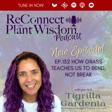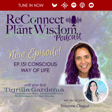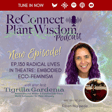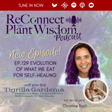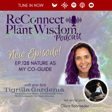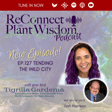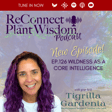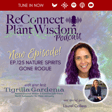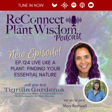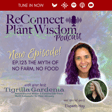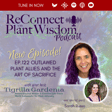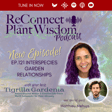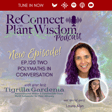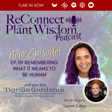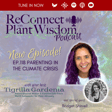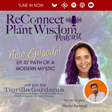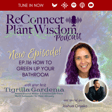
Ep.62 Plant Spirit Medicine with Patrick Hanaway
In this enlightening episode, Dr. Patrick Hanaway shares his transformative journey from conventional Western medicine to the profound wisdom of plant spirit medicine. Discover how he bridges the gap between these worlds, advocating for a symbiotic relationship with local flora that fosters deep healing through relationship.
This episode is a call to awaken to the intricate web of life that binds us all, urging us to embrace a more compassionate and integrated path to wellness.
PATRICK HANAWAY, MD is a board-certified family physician and was initiated in 2009 as a Mara’akame [indigenous healer] by the Wixarika [Huichol] people of the Sierra Madres in Mexico.
Blue Deer Center is a non-profit spiritual retreat, located in the New York Catskills in the United States.
Topics Covered about plant spirit medicine
➡️ Learning from unexpected sources, like tomato and cactus, leading to a redefinition of medicine and healing.
➡️ The importance of recognizing and resonating with the unique characteristics of a plant person, rather than seeking a generic or universal approach.
➡️ The importance of relationships with plants, recognizing their interconnectedness and the need to redefine our understanding of relationships.
➡️ Asking for help from plants and mushrooms to heal from stage four cancer.
➡️ The idea of disease as a catalyst for evolution, suggesting that it can take us towards new forms of evolution
Resources Mentioned
- Plant Spirit Medicine
- Growing Awareness of Nature, an online and self-paced course designed to foster a profound connection between individuals and the natural world.
- Get a Plant Music Healing session
- What's Your Spirit Wild Plant? Find out here
☝🏽ReConnect with Plant Wisdom podcast Ancient and modern knowledge from biology to spirituality about the wondrous ways plants help you lead a Naturally Conscious life. Subscribe on your favorite podcast player.
👉🏽 Join the Naturally Conscious Community to nourish human-plant relationships
// Let's work together: book a Discovery Call
// EcoConscious Business Partners
Learn More from The Shift Network
Shop Here with more partners
// Opening and Closing music by Steve Sciulli and Poinsettia from The Singing Life of Plants
// Socialize with me
Facebook | Instagram | LinkedIn | Youtube

